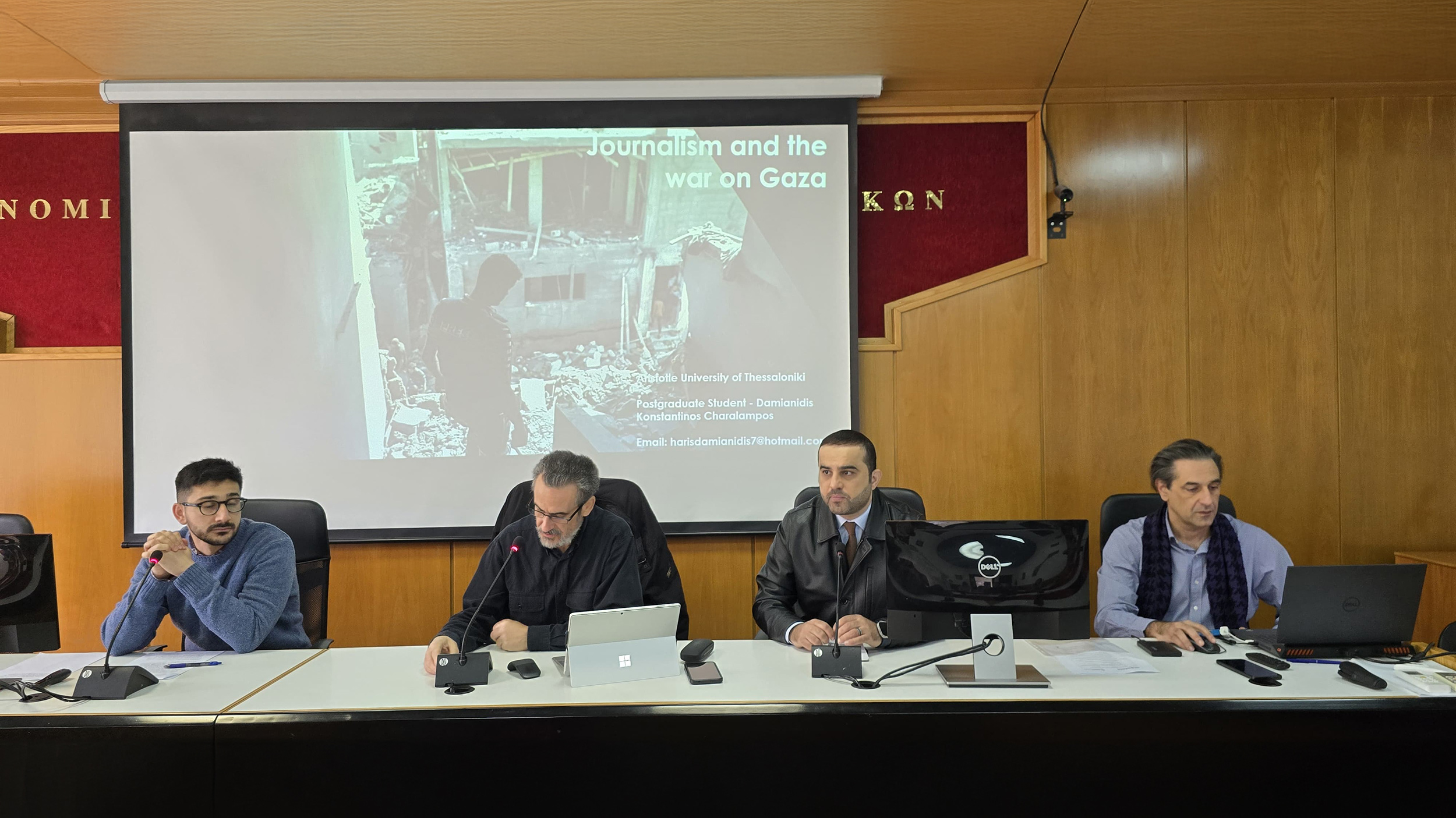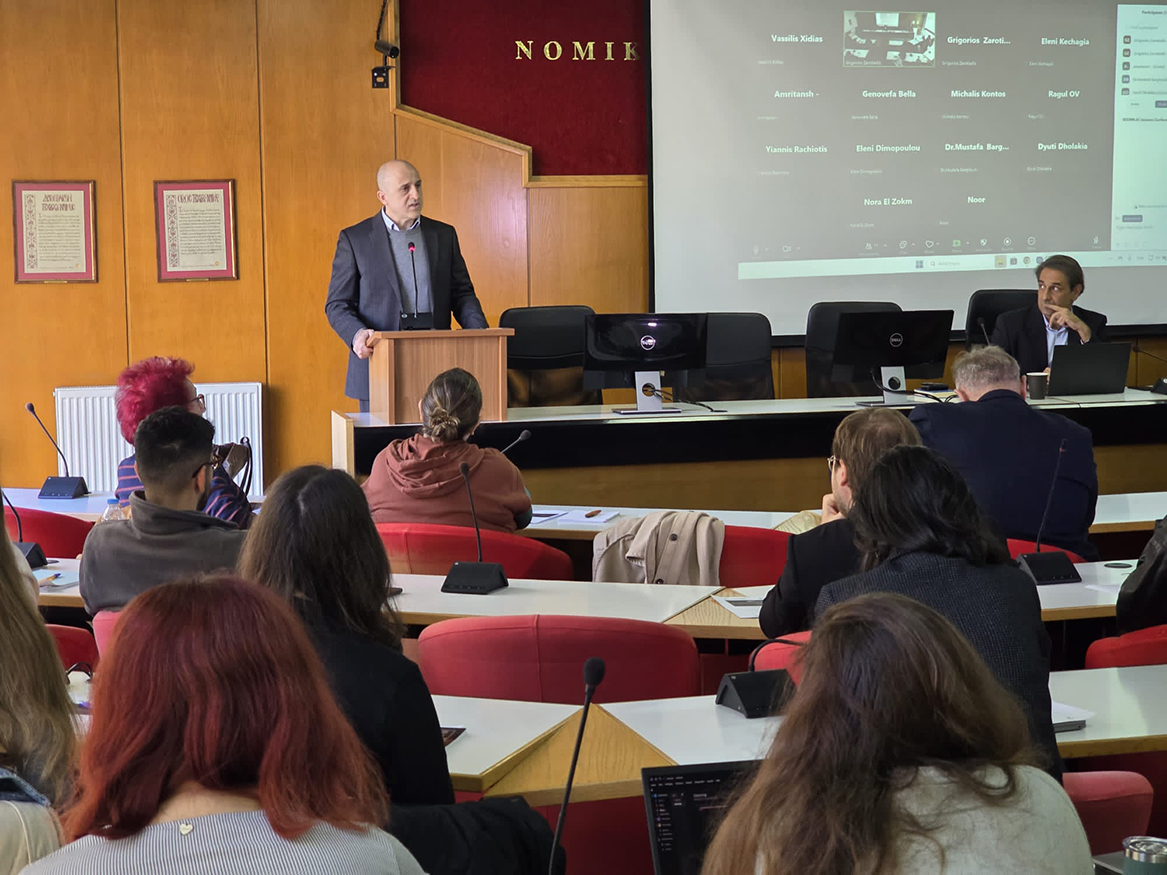
An international conference titled “Discussing Stability and Peace in Turbulent Times: Local, Regional, and International Ramifications of the War on Gaza” was held in Thessaloniki, Greece, on the 27th and 28th of November 2024. The event was organised jointly by Al Jazeera Centre for Studies, the Black Sea and Eastern Mediterranean Review (BSEMR), the University of Nicosia, and Aristotle University of Thessaloniki. The conference attracted a wide range of researchers, experts and specialists from around the world, either attending in person at Aristotle University or participating virtually, giving the event a global dimension that reflected diverse perspectives on the issue
The sessions focused on various aspects of the Israeli war on Gaza, which began in October 2023, and highlighted the need for a comprehensive approach to address the political, humanitarian and social dimensions of the conflict. Discussions were intensive on “strategies for ending the conflict”, where experts examined possible ways to halt the war and initiate inclusive dialogue aimed at achieving a lasting settlement. Emphasis was placed on the need for local, regional and international actors to commit to fostering stability, with practical proposals put forward to overcome obstacles hindering progress, including the differing positions of influential countries in the region.
The discussions also explored the prospects of Gaza's reconstruction, focusing on the scale of destruction caused by the war and its impact on infrastructure and vital sectors. Participants stressed the importance of ensuring a significant role for international organisations in the reconstruction process and discussed sustainable funding mechanisms for providing aid to the affected population, with a focus on avoiding the politicisation of humanitarian assistance.

The role of international and humanitarian organisations in supporting Gaza's affected communities was another key topic. The challenges these organisations face, such as the Israeli blockade and restrictions on aid delivery, were examined. In this context, experts called for reforming the international system to ensure more effective humanitarian intervention and enhance cooperation between donors and local organisations.
One prominent discussion point was “journalists' challenges in conflict zones”, where the risks faced by journalists covering events in Gaza and similar regions were explored. The discussions highlighted the importance of establishing mechanisms to protect journalists and promote press freedom, given the essential role journalism plays in documenting conflicts and exposing violations.
The conference also addressed the impact of the war on the Arab-Israeli normalisation process, noting the decline in momentum for normalisation after the outbreak of hostilities. Discussions focused on the potential consequences of this decline for the future of regional relations, particularly in relation to proposed solutions for the Israeli-Palestinian conflict
At the conclusion of the sessions, discussions centred on the future of the Palestinian cause, assessing the prospects for reviving the peace process in the face of growing challenges. Proposals included the possibility of achieving a two-state solution, alongside calls for intensified international efforts to pressure the concerned parties to return to the negotiating table.
The conference underscored the importance of recalling the war's impact as an opportunity to assess its consequences and find innovative solutions to the conflict. It provided a platform for exchanging ideas among experts from diverse fields and backgrounds, enriching the discussion on the Palestinian issue from multiple perspectives. The event also allowed for an evaluation of the role the international community can play in promoting peace and stability in the region.
The conference concluded with several recommendations, most notably calling for the strengthening of international efforts to achieve a fair and sustainable settlement, supporting the Palestinian people, and holding accountable those responsible for prolonging the conflict. Participants emphasised the necessity of strong international will to activate diplomatic and political mechanisms that ensure a comprehensive resolution to the Palestinian issue, restore stability to the region, and safeguard human rights.